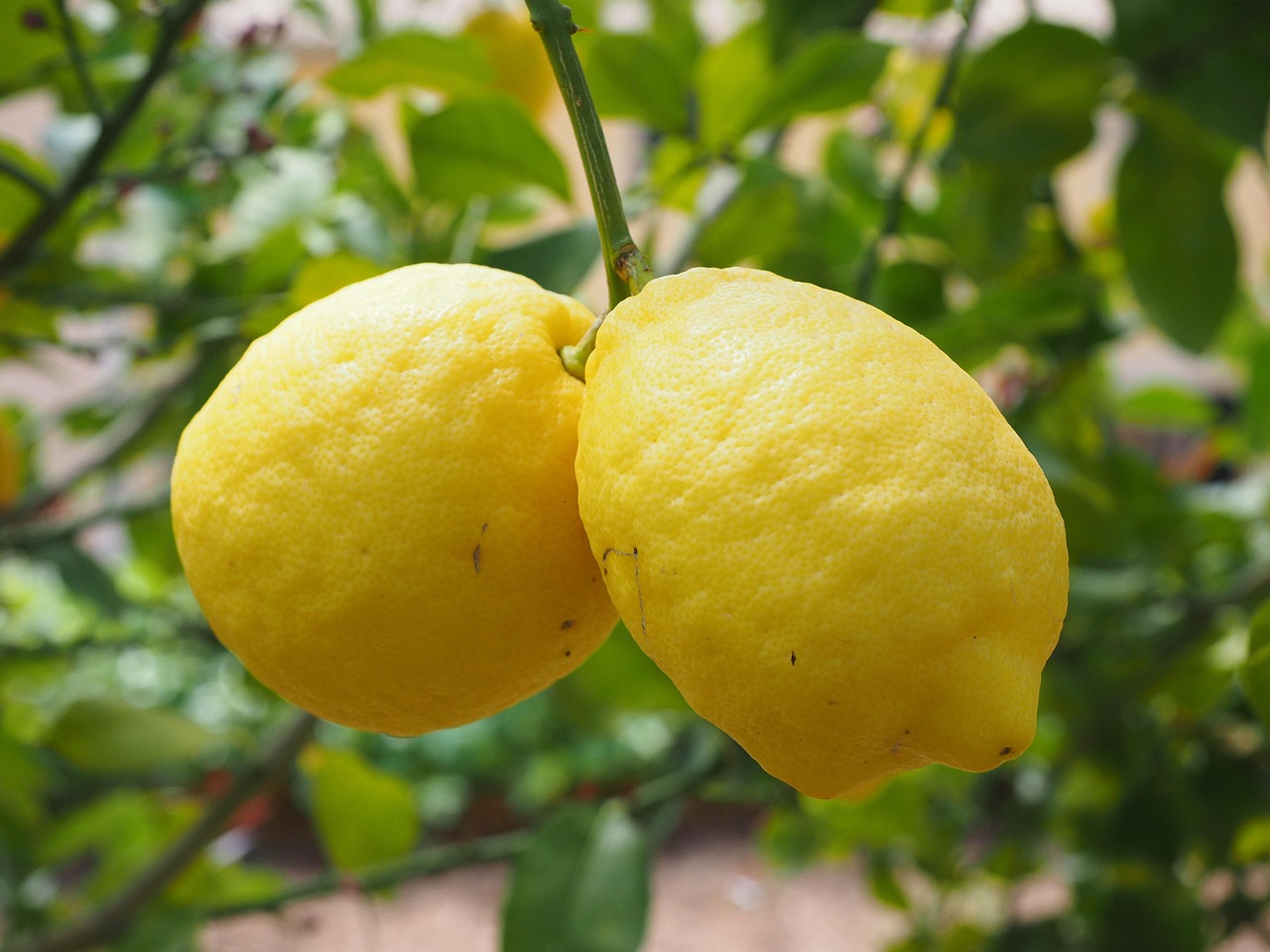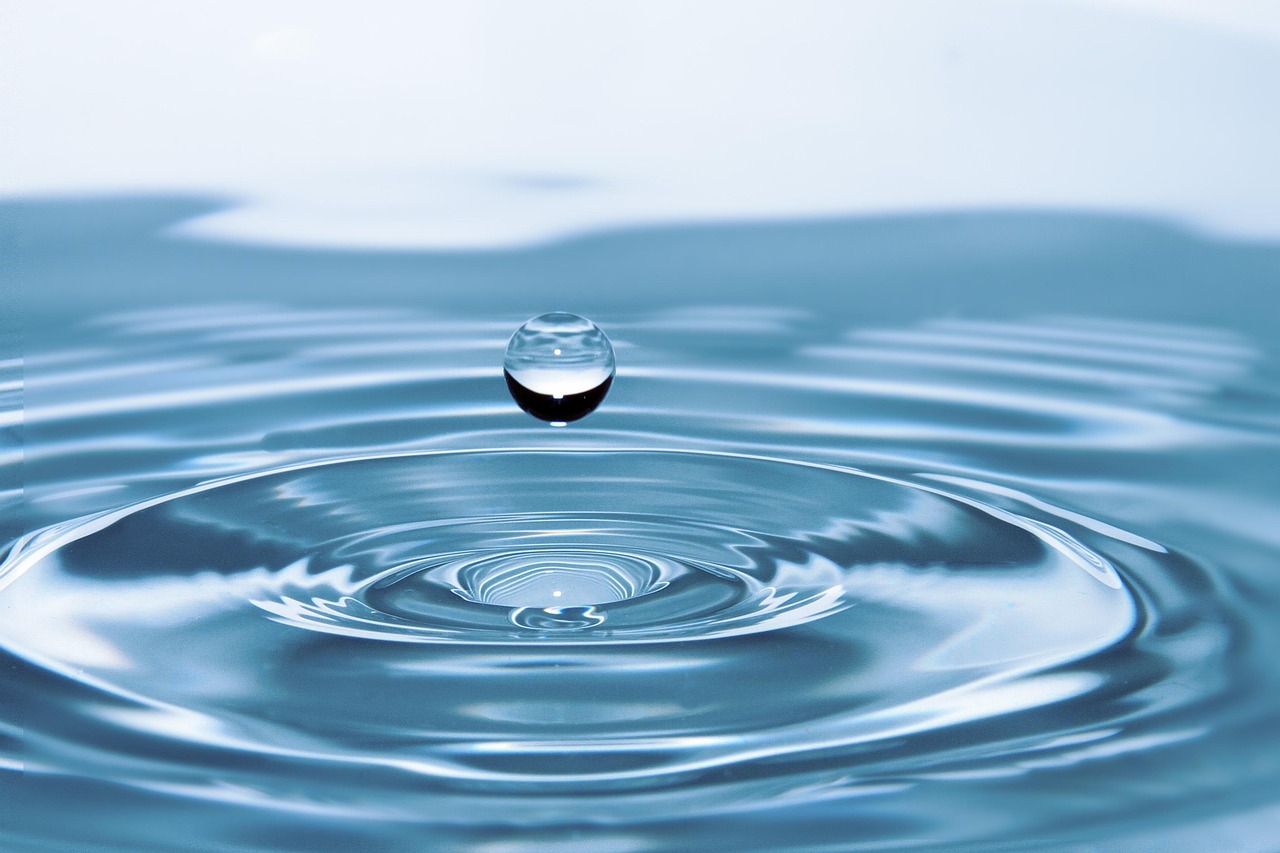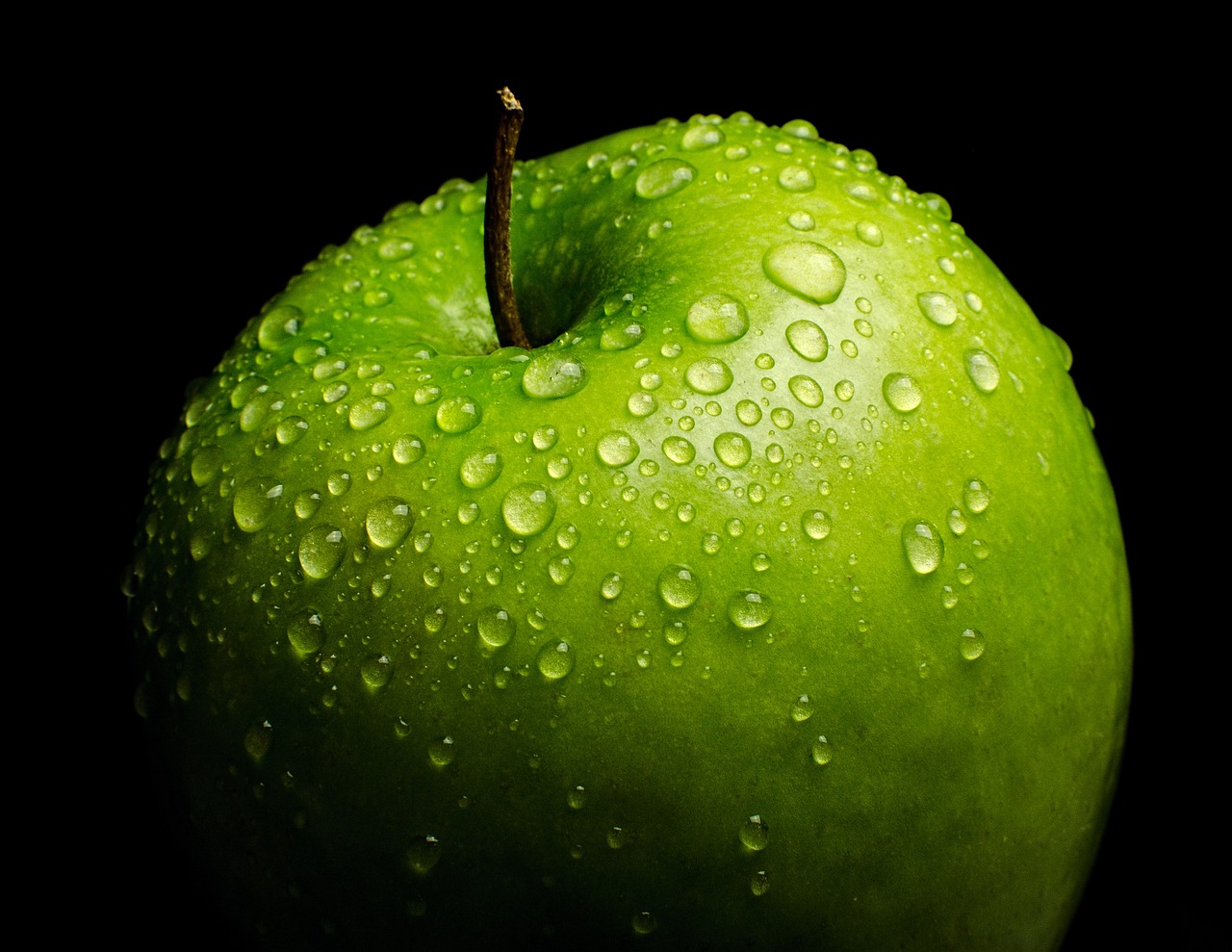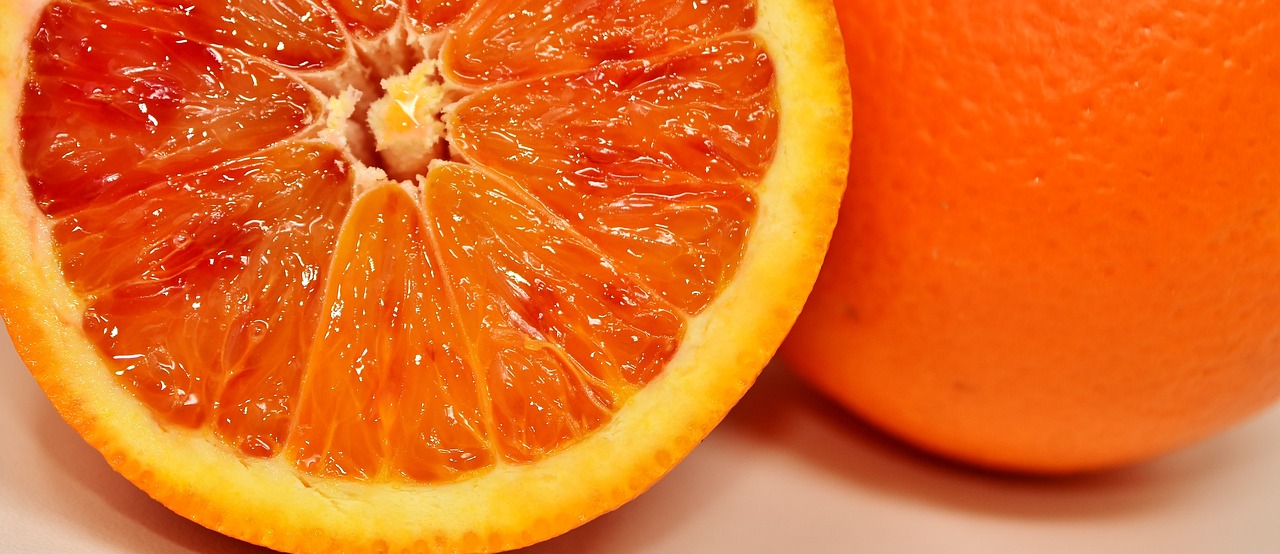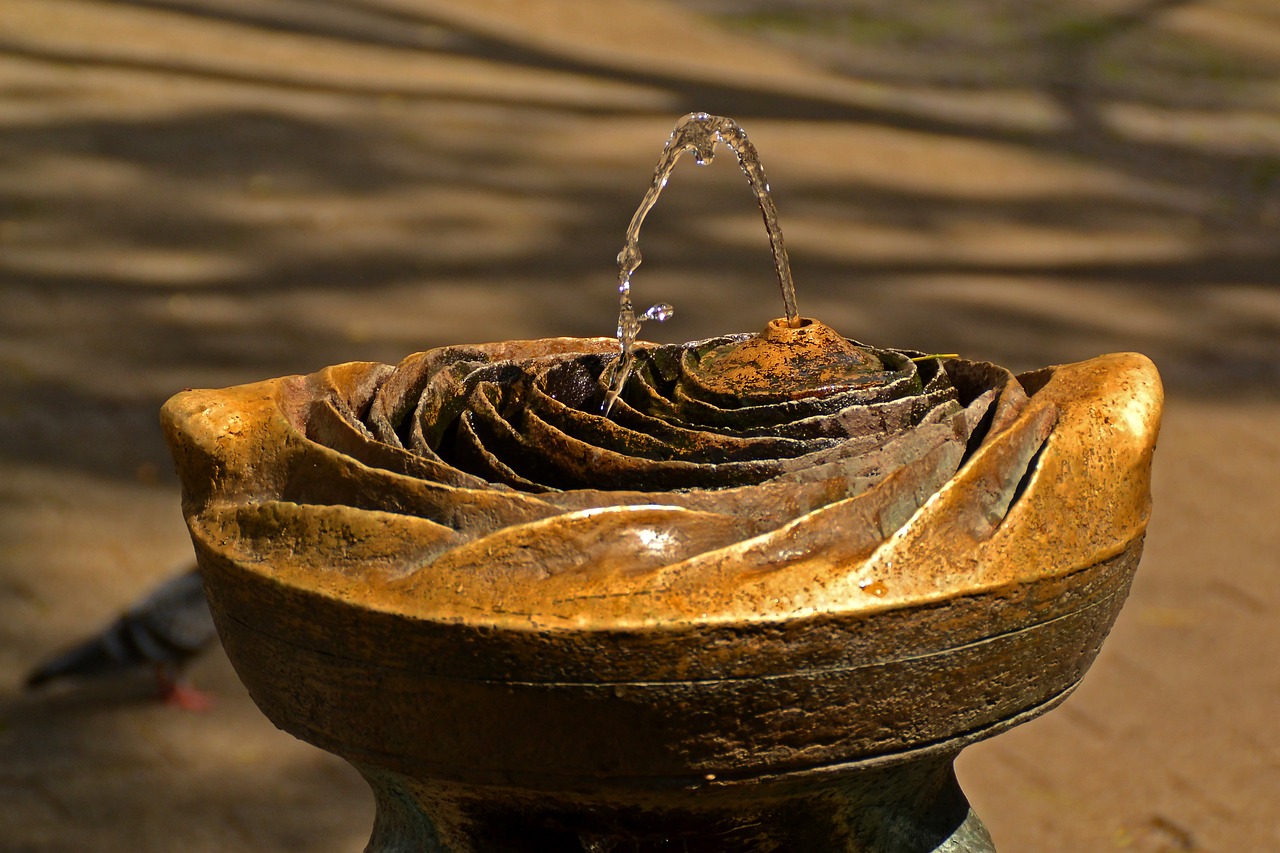This article delves into the effects of lemon water on fasting, addressing common questions and providing insights into its benefits, potential drawbacks, and how it fits into various fasting protocols.
Understanding Fasting and Its Purpose
Fasting is the practice of abstaining from food and, in some cases, beverages for a specified duration. The reasons for fasting can vary, including weight loss, improved metabolic health, or spiritual reasons. Understanding the purpose of your fast is crucial for making informed decisions about what you can consume during this time.
What Is Lemon Water?
Lemon water is a refreshing drink made by mixing freshly squeezed lemon juice with water. It is popular not only for its taste but also for its potential health benefits, such as hydration and a boost in vitamin C levels.
Health Benefits of Lemon Water
- Improved Digestion: Lemon water may aid in digestion, helping to alleviate symptoms like bloating and indigestion.
- Enhanced Hydration: Staying hydrated is vital during fasting, and lemon water can help maintain hydration levels effectively.
- Boost in Vitamin C: Lemons are rich in vitamin C, which supports the immune system and overall health.
Hydration During Fasting
Hydration is essential during any fasting period. Lemon water provides a flavorful alternative to plain water, making it easier to meet your hydration needs without adding significant calories. This makes it a popular choice for individuals observing various fasting protocols.
Potential Antioxidant Properties
Lemons are known for their antioxidant properties, which can help combat oxidative stress in the body. This can be particularly beneficial during fasting, as the body undergoes various metabolic changes.
Lemon Water and Caloric Intake
One of the main concerns during fasting is caloric intake. A typical serving of lemon water contains minimal calories, which is often considered acceptable within most fasting frameworks. Understanding how lemon water fits into the caloric restrictions of different fasting methods is essential for clarity on its role.
Does Lemon Water Break a Fast?
This question is frequently debated among health enthusiasts. To clarify, it’s important to explore the definitions of fasting and how lemon water aligns with them. Generally, if the caloric intake remains low, lemon water may not significantly disrupt the fasting state.
Intermittent Fasting and Lemon Water
Intermittent fasting involves cycling between eating and fasting periods. Many practitioners find that consuming lemon water during fasting windows helps curb hunger and maintain hydration without breaking their fast.
Extended Fasting Considerations
For those engaging in extended fasting, the implications of consuming lemon water should be evaluated carefully. While it may not break a fast in the traditional sense, individuals should listen to their bodies and consider how they feel when including it.
Expert Opinions on Lemon Water and Fasting
Insights from nutritionists and health experts can provide valuable guidance on the role of lemon water in fasting. Many emphasize the importance of hydration and suggest that lemon water can be a beneficial addition to a fasting regimen.
Nutritionists’ Perspectives
Nutritionists often highlight the role of hydration during fasting. They may recommend lemon water as a way to enhance the fasting experience while ensuring adequate fluid intake.
Medical Considerations
For some individuals, specific medical conditions may influence their fasting practices. Understanding these considerations regarding lemon water consumption is vital for safe fasting.
Practical Tips for Incorporating Lemon Water
- Preparation and Consumption: To prepare lemon water, simply squeeze half a lemon into a glass of water. Consuming it in the morning can be particularly refreshing.
- Monitoring Your Body’s Response: Pay attention to how lemon water affects your energy levels and hunger. Adjust your approach as necessary to ensure a comfortable fasting experience.

Understanding Fasting and Its Purpose
Fasting is a practice that has been embraced by various cultures and religions for centuries. It involves abstaining from food for a designated period, and this practice can yield numerous health benefits. Understanding the underlying purpose of fasting is essential, as it influences what can be consumed during the fasting period and how the body responds to it.
The primary goal of fasting is often to promote physical and mental clarity. Many individuals fast to reset their metabolism, enhance cellular repair, and improve overall health. Scientific studies suggest that fasting can lead to improved insulin sensitivity, weight loss, and even longevity by triggering autophagy, a process where the body cleanses itself of damaged cells.
Fasting can take various forms, including intermittent fasting, where individuals cycle between periods of eating and fasting, and extended fasting, which lasts for longer durations. Each method has its unique benefits and challenges, making it crucial for individuals to choose a fasting style that aligns with their lifestyle and health goals.
During fasting, the choice of what to consume can significantly impact the experience and benefits. Many people wonder if they can drink beverages like lemon water without breaking their fast. Lemon water, a mixture of fresh lemon juice and water, is often considered a suitable option due to its low-calorie content and potential health benefits.
When considering lemon water during fasting, it is essential to note that it contains minimal calories, which typically does not interfere with the metabolic benefits associated with fasting. The inclusion of lemon water can aid in maintaining hydration, which is vital during fasting periods. Staying hydrated can help alleviate feelings of hunger and improve overall well-being.
Moreover, lemon water is rich in vitamin C and antioxidants, which can provide additional health benefits, such as supporting the immune system and enhancing skin health. These properties can be particularly appealing for those observing fasting protocols, as they help to ensure that the body receives essential nutrients even during periods of abstaining from solid food.
However, some individuals may have concerns about the acidity of lemon juice and its potential effects on the stomach. For those with sensitive digestive systems, it may be advisable to consume lemon water in moderation and pay attention to how the body responds. Listening to one’s body during fasting is crucial, as each individual’s experience can vary.
Incorporating lemon water into a fasting regimen can be simple and enjoyable. To prepare lemon water, one can squeeze the juice of half a lemon into a glass of water. This refreshing drink can be consumed at any time during the fasting period, making it a versatile choice.
Ultimately, understanding the purpose behind fasting and how beverages like lemon water fit into this framework is essential for maximizing the benefits of fasting. As individuals embark on their fasting journeys, they should consider their unique health needs and preferences, ensuring that their approach is both beneficial and sustainable.
- Key benefits of fasting:
- Improved insulin sensitivity
- Enhanced weight loss
- Increased cellular repair
- Potential longevity benefits
- Lemon Water Benefits:
- Hydration support
- Rich in vitamin C
- Antioxidant properties
In conclusion, fasting is a powerful tool for enhancing health and wellness. Understanding its purposes and the role of beverages like lemon water can help individuals make informed choices that align with their goals. By focusing on hydration and nutrient intake, one can navigate their fasting experience more effectively.

What Is Lemon Water?
Lemon water is a refreshing beverage that combines freshly squeezed lemon juice with water. This simple mixture not only quenches thirst but also offers a variety of potential health benefits. Many individuals incorporate lemon water into their daily routines due to its invigorating taste and nutritional value, particularly its high vitamin C content.
One of the primary reasons people opt for lemon water is its ability to promote hydration. Staying hydrated is crucial for overall health, especially during fasting or intense physical activities. Lemon water can serve as a flavorful alternative to plain water, making it easier for individuals to meet their hydration needs throughout the day.
Additionally, lemon water is known for its antioxidant properties. Lemons contain compounds like flavonoids and ascorbic acid, which can help combat oxidative stress in the body. This is particularly important in today’s fast-paced world, where exposure to environmental toxins and stressors can lead to increased oxidative damage.
Moreover, the digestive benefits of lemon water are often highlighted. Many people find that consuming lemon water can aid in digestion and may even help alleviate symptoms of indigestion. The acidity of lemon juice may stimulate the production of digestive juices, promoting better digestion and nutrient absorption.
Another appealing aspect of lemon water is its low-calorie content. A typical serving of lemon water contains minimal calories, making it an ideal choice for those who are watching their caloric intake or following specific dietary protocols. This characteristic aligns well with various fasting methods, where maintaining low caloric consumption is essential.
Incorporating lemon water into your routine can also be beneficial for your skin. The vitamin C in lemons is known to support collagen production, which can enhance skin elasticity and overall appearance. Regular consumption of lemon water may contribute to a radiant complexion and help combat signs of aging.
For those concerned about weight management, lemon water can be a helpful addition. Some studies suggest that the pectin fiber found in lemons may help reduce hunger cravings, making it easier to control appetite during fasting periods. This can be particularly beneficial for individuals practicing intermittent fasting.
In summary, lemon water is more than just a tasty drink; it is a versatile beverage that offers numerous health benefits. From promoting hydration and digestion to providing essential nutrients, lemon water can play a valuable role in a balanced diet and healthy lifestyle.
As you consider adding lemon water to your daily regimen, remember to adjust the amount of lemon juice based on your taste preferences and dietary needs. Experimenting with different ratios of lemon juice to water can help you find the perfect balance that suits your palate while maximizing the benefits.
In conclusion, lemon water stands out as a simple yet effective way to enhance your hydration and overall health. Whether enjoyed on its own or as part of a broader dietary strategy, this delightful beverage can contribute positively to your wellness journey.
Health Benefits of Lemon Water
Lemon water is a refreshing beverage that has gained popularity not only for its taste but also for its numerous health benefits. When consumed regularly, especially during fasting periods, it can offer a variety of advantages that enhance overall well-being. This article delves into the specific health benefits of lemon water, particularly during fasting, and how it can be a valuable addition to your hydration routine.
- Improved Digestion: Lemon water is known to aid in digestion. The acidity of lemon juice can help break down food more effectively, promoting better nutrient absorption. This is particularly beneficial during fasting, as it can help prepare the digestive system for reintroduction to food.
- Enhanced Hydration: Staying hydrated is crucial during fasting. Lemon water not only quenches thirst but also adds a burst of flavor, making it easier to consume adequate amounts of fluid. Proper hydration can prevent fatigue and maintain energy levels throughout the fasting period.
- Boost in Vitamin C Levels: Lemons are an excellent source of vitamin C, an essential nutrient that supports the immune system. During fasting, when the body may be more susceptible to illnesses, maintaining adequate vitamin C levels can be particularly beneficial.
- Detoxification Support: Lemon water may support the body’s natural detoxification processes. The citric acid in lemons can enhance liver function and promote the elimination of toxins, which is especially important during fasting when the body is in a state of cleansing.
- Potential Weight Management: Incorporating lemon water into your fasting routine may assist in weight management. The beverage is low in calories and can help you feel fuller, reducing the likelihood of overeating during eating windows.
Maintaining hydration is essential for anyone observing fasting protocols. Lemon water serves as an excellent option because it provides hydration without adding significant calories. The refreshing taste can encourage increased fluid intake, which can be vital for those who may struggle to drink enough water during fasting periods.
Rich in antioxidants, lemons can help combat oxidative stress in the body. This is crucial during fasting, as the body undergoes various metabolic changes. Antioxidants can help mitigate some of the negative effects of these changes, promoting overall health and wellness.
One common concern during fasting is maintaining caloric restrictions. Lemon water is virtually calorie-free, making it a popular choice among those who want to enhance their fasting experience without breaking their fast. Understanding how this beverage fits into different fasting methods can help individuals make informed choices.
The debate over whether lemon water breaks a fast often arises among health enthusiasts. While some argue that any caloric intake can disrupt fasting, others believe that the negligible calories in lemon water do not significantly impact the fasting state. Evaluating this topic requires a deeper understanding of fasting definitions and personal goals.
For those practicing intermittent fasting, lemon water can be a beneficial addition. It can be consumed during fasting periods to help curb hunger and maintain hydration. This makes it a favorable option for individuals looking to enhance their fasting experience without compromising their goals.
During extended fasting, the implications of consuming lemon water should be carefully evaluated. While it can offer hydration and some health benefits, individuals should listen to their bodies and adjust their intake based on their unique needs and experiences.
Nutritionists and health experts often emphasize the importance of hydration during fasting. Many recommend lemon water as a way to enhance the fasting experience, citing its health benefits and refreshing taste. Their insights can guide individuals in making informed decisions about incorporating lemon water into their fasting regimen.
- Preparation: To prepare lemon water, simply squeeze the juice of half a lemon into a glass of water. You can adjust the amount of lemon juice based on your taste preference.
- Consumption Timing: Drinking lemon water first thing in the morning can kickstart your metabolism and provide hydration after a night of fasting.
- Monitor Your Body: Pay attention to how lemon water affects your energy levels and hunger during fasting. Adjust your intake as needed to find the balance that works best for you.
Hydration During Fasting
Staying hydrated is essential during fasting, as it helps to maintain optimal bodily functions and supports overall health. Lemon water, a refreshing drink made by mixing fresh lemon juice with water, has gained popularity among those observing various fasting protocols. This beverage not only aids in hydration but also adds a hint of flavor without significantly increasing caloric intake, making it an appealing choice for many.
During fasting, it is crucial to consume non-caloric beverages to help curb hunger and maintain hydration levels. Lemon water fits perfectly into this category. With only a few calories from the lemon juice, it allows individuals to stay hydrated while adhering to their fasting goals. The low calorie count ensures that it does not disrupt the metabolic state associated with fasting.
In addition to hydration, lemon water provides a range of health benefits that can be particularly beneficial during fasting. For instance, the vitamin C found in lemons can boost the immune system, which is especially important during fasting when the body may be more susceptible to illness. Furthermore, lemon water can aid in digestion, helping to alleviate any discomfort that may arise during periods of food abstinence.
Another advantage of lemon water is its potential to enhance detoxification. The antioxidants present in lemons can help combat oxidative stress, which is a common concern during fasting. By incorporating lemon water into a fasting routine, individuals may experience improved overall wellness and vitality.
Moreover, lemon water can help manage cravings. The citrus flavor can stimulate the senses and provide a refreshing alternative to plain water, making it easier to resist the temptation of solid foods during fasting periods. This can be particularly helpful for those who struggle with hunger pangs.
When considering the role of lemon water in fasting, it’s essential to recognize that while it offers numerous benefits, moderation is key. Overconsumption of lemon water may lead to digestive discomfort for some individuals. Therefore, it is advisable to listen to your body and adjust your intake accordingly.
For those engaging in intermittent fasting, lemon water can be an excellent addition to the fasting window. It can be consumed during the fasting phase without breaking the fast, allowing individuals to enjoy its benefits without compromising their fasting goals. In contrast, during extended fasting periods, individuals should consult with healthcare professionals to determine the appropriateness of lemon water consumption based on their unique health circumstances.
In conclusion, staying hydrated during fasting is vital for maintaining health and well-being. Lemon water serves as a flavorful, low-calorie option that can enhance hydration while providing additional health benefits. By incorporating this beverage into their fasting routine, individuals can enjoy a refreshing drink that supports their fasting journey.
Potential Antioxidant Properties
Lemons are not just a popular citrus fruit; they are also renowned for their health benefits, particularly due to their high content of antioxidants. These antioxidants play a crucial role in combating oxidative stress, which is linked to various chronic diseases and aging. Understanding the antioxidant properties of lemons can significantly influence whether lemon water is deemed beneficial during fasting.
Oxidative stress occurs when there is an imbalance between free radicals and antioxidants in the body. This imbalance can lead to cellular damage and has been implicated in conditions such as heart disease, cancer, and neurodegenerative disorders. Lemons, rich in vitamin C and other phytonutrients, provide a robust defense against oxidative stress. This makes lemon water, a simple mixture of lemon juice and water, an appealing choice for those looking to enhance their health during fasting.
In the context of fasting, the consumption of lemon water can offer several benefits, particularly in terms of hydration and nutrient intake. While the primary goal of fasting is often to abstain from caloric intake, lemon water contributes minimal calories while delivering essential nutrients. This can help maintain energy levels and support overall well-being during fasting periods.
Hydration is vital during any fasting regimen, and lemon water can serve as a refreshing and flavorful alternative to plain water. Staying hydrated can help mitigate feelings of hunger and fatigue, making the fasting experience more manageable. Additionally, the vitamin C in lemon water can support the immune system, which is especially important when the body is in a state of fasting.
Moreover, the antioxidant properties of lemons may offer additional support during fasting. By reducing oxidative stress, lemon water can help the body cope with the physiological changes that occur during fasting. This can lead to improved metabolic function and enhanced fat oxidation, which are often sought after during fasting protocols.
It is essential to consider how lemon water fits into various fasting methods. For example, in intermittent fasting, where eating and fasting cycles alternate, lemon water can be consumed during fasting windows without significantly impacting the fast. On the other hand, during extended fasting periods, individuals may need to evaluate their own responses to lemon water, as prolonged fasting typically requires stricter adherence to caloric restrictions.
Experts often emphasize the importance of listening to one’s body during fasting. Some individuals may find that lemon water helps them feel more energized and focused, while others might experience different effects. It is crucial to monitor how lemon water influences personal energy levels, hunger cues, and overall well-being.
Incorporating lemon water into a fasting regimen can be straightforward. To prepare lemon water, simply squeeze the juice of half a lemon into a glass of water. For added flavor and benefits, consider infusing it with mint leaves or ginger. Timing can also play a role; many find it beneficial to consume lemon water first thing in the morning or during fasting periods to enhance hydration and nutrient absorption.
In conclusion, the potential antioxidant properties of lemons make lemon water a compelling choice for those engaging in fasting. By providing hydration, essential nutrients, and antioxidant support, lemon water can enhance the fasting experience. However, individual responses may vary, so it is important to approach its consumption thoughtfully and in alignment with personal health goals.
Lemon Water and Caloric Intake
When it comes to fasting, caloric intake is a primary concern for many individuals. Understanding how various beverages, like lemon water, fit into different fasting protocols can help clarify their role and impact on the fasting experience. This section delves into the nuances of lemon water consumption and its caloric implications during fasting.
Lemon water is essentially a mixture of fresh lemon juice and water, making it a low-calorie beverage. A typical serving contains approximately 6 calories, primarily from the natural sugars present in the lemon juice. This minimal caloric content raises the question: does consuming lemon water during fasting break the fast?
Fasting methods vary widely, from intermittent fasting to extended fasting, each with its own set of rules regarding caloric intake. The primary goal of fasting is to allow the body to enter a state of ketosis or to promote autophagy, both of which are influenced by caloric consumption. Therefore, understanding how lemon water fits into these frameworks is essential for those observing fasting.
- During intermittent fasting, the focus is on cycling between eating and fasting periods.
- Many practitioners allow low-calorie beverages, including lemon water, to help maintain hydration and curb hunger.
- In this context, lemon water may not significantly disrupt the fasting state, making it a popular choice.
In contrast, extended fasting presents a different scenario. During prolonged periods without food, the body’s metabolic processes can shift dramatically. While lemon water’s low-caloric content is appealing, some experts suggest that even minimal caloric intake could potentially interfere with the benefits of a strict fast.
Nutritionists and health experts generally agree that staying hydrated is crucial during fasting. However, they also caution against any caloric intake that could alter the fasting state. According to registered dietitian Jane Smith, “While lemon water is low in calories, it’s essential to listen to your body and determine what works best for your fasting goals.”
If you decide to include lemon water in your fasting regimen, consider the following tips:
- Preparation: Use fresh lemon juice for the best flavor and health benefits. Aim for half a lemon squeezed into a glass of water.
- Timing: Consume lemon water during your fasting window to help alleviate hunger pangs and stay hydrated.
- Monitor Effects: Pay attention to how your body responds. If you notice increased hunger or discomfort, you may want to adjust your intake.
In summary, lemon water presents a unique option for those navigating the complexities of fasting. With its low-caloric profile, it can serve as a refreshing beverage that supports hydration without significantly impacting caloric intake. However, individual responses may vary, and it’s essential to tailor your approach based on personal goals and fasting methods.

Does Lemon Water Break a Fast?
The question of whether lemon water breaks a fast is a topic of ongoing debate among health enthusiasts and those practicing various fasting protocols. To answer this question, it is essential to delve into the definitions of fasting, the nature of lemon water, and how they interact during the fasting period.
Fasting is generally defined as the voluntary abstention from food and, in some cases, beverages for a specific duration. The primary goal of fasting can vary from health benefits, such as weight loss and improved metabolic health, to spiritual growth. The type of fasting one practices can influence what is considered acceptable to consume.
Lemon water is created by mixing fresh lemon juice with water. It is often praised for its refreshing taste and potential health benefits, such as:
- Hydration: Maintaining adequate fluid intake is crucial, especially during fasting.
- Vitamin C: Lemons are a rich source of vitamin C, which supports immune function.
- Antioxidants: The antioxidants in lemons may help reduce oxidative stress in the body.
When considering whether lemon water breaks a fast, it is vital to explore its health benefits:
- Improved Digestion: Lemon water can stimulate digestive enzymes, aiding digestion.
- Enhanced Hydration: Staying hydrated helps maintain energy levels, which is especially important during fasting.
- Support for Detoxification: Lemon water may assist the liver in detoxifying the body.
To determine if lemon water breaks a fast, one must consider the caloric content and the purpose of the fast. Pure lemon juice contains minimal calories—approximately 4 calories per tablespoon. This low caloric value leads many to argue that lemon water does not significantly impact the fasting state.
In the context of intermittent fasting, where individuals cycle between eating and fasting periods, lemon water can be a beneficial addition. It aids hydration and provides a refreshing option without substantial caloric intake. Many people find that lemon water helps curb hunger pangs during fasting windows.
For those engaging in extended fasting, the implications of consuming lemon water warrant careful consideration. While some individuals may choose to avoid any caloric intake, others may include lemon water as a means to stay hydrated and energized. It is essential to listen to one’s body and adjust accordingly.
Nutritionists and health experts often emphasize the importance of hydration during fasting. Many agree that lemon water can be a valuable addition, as it provides hydration without significantly affecting insulin levels or caloric intake. However, individuals with specific health conditions should consult with a healthcare professional before incorporating lemon water into their fasting routine.
For those who decide to include lemon water in their fasting regimen, here are some practical tips:
- Preparation: Mix fresh lemon juice with water, adjusting the quantity to taste.
- Timing: Consume lemon water during fasting periods to enhance hydration.
- Monitoring: Pay attention to how lemon water affects your hunger and energy levels.
In summary, while the debate continues, many health enthusiasts find that lemon water can be a beneficial addition to their fasting practices, provided it aligns with their individual goals and fasting protocols.
Intermittent Fasting and Lemon Water
Intermittent fasting has gained immense popularity as a method for weight management and overall health improvement. It involves cycling between periods of eating and fasting, which can lead to various metabolic benefits. One question that frequently arises among those practicing intermittent fasting is whether lemon water can be consumed during fasting periods without breaking the fast. Understanding this aspect can help individuals make informed dietary choices that align with their fasting goals.
Lemon water is simply a mixture of fresh lemon juice and water. It is known for its refreshing flavor and numerous health benefits, including hydration and a good dose of vitamin C. During fasting, maintaining hydration is crucial, and lemon water can be a delightful way to achieve this without adding significant calories.
- Hydration: Staying hydrated is essential when fasting, and lemon water serves as a flavorful alternative to plain water.
- Digestive Aid: Lemon water may help stimulate digestive enzymes, which can enhance digestion when breaking a fast.
- Antioxidant Properties: The antioxidants in lemons can help combat oxidative stress, promoting overall health.
While lemon water is low in calories, it is important to consider how it fits into different fasting protocols. For example, in intermittent fasting, where the focus is on limiting caloric intake during fasting windows, lemon water is often deemed acceptable due to its minimal caloric content. A typical serving of lemon water contains less than 5 calories, which is unlikely to trigger metabolic responses associated with food consumption.
This is a common question among those who practice intermittent fasting. The answer largely depends on how one defines fasting. If fasting is strictly defined as total abstinence from all caloric intake, then even a few calories from lemon water could be considered breaking the fast. However, many health enthusiasts argue that the benefits of hydration and the negligible caloric content make lemon water an acceptable choice during fasting periods.
Nutritionists often emphasize the importance of hydration, especially during fasting. Many experts advocate for the inclusion of lemon water, highlighting its potential benefits without significant caloric impact. They suggest that individuals listen to their bodies and monitor how lemon water affects their hunger and energy levels during fasting.
For those who decide to include lemon water in their fasting regimen, here are some practical tips:
- Preparation: Squeeze half a lemon into a glass of water. Adjust the amount based on personal preference.
- Timing: Consume lemon water during the fasting period or just before breaking the fast to aid digestion.
- Listen to Your Body: Pay attention to how lemon water impacts your hunger and energy levels, adjusting your intake as needed.
Incorporating lemon water can enhance the fasting experience, providing a refreshing option that supports hydration and overall well-being. As with any dietary choice, individual responses may vary, so it is essential to find what works best for your body while adhering to your fasting goals.
Extended Fasting Considerations
Extended fasting is a practice that involves abstaining from food for an extended period, typically lasting more than 24 hours. This method is often pursued for various reasons, including weight loss, improved metabolic health, and even spiritual or mental clarity. However, as individuals embark on this journey, it becomes crucial to evaluate what can be consumed during these fasting periods, particularly the implications of lemon water.
Understanding the Role of Lemon Water
Lemon water, made by mixing fresh lemon juice with water, is celebrated for its refreshing taste and potential health benefits. Many people include it in their daily routines for its hydration properties and a boost in vitamin C. During extended fasting, the question arises: does lemon water break a fast?
The Caloric Debate
One of the primary concerns during fasting is the intake of calories. Lemon water is low in calories, which may make it an appealing option for those observing fasting protocols. Typically, a glass of lemon water contains only a few calories, primarily from the lemon juice. This raises an important question: does this minimal caloric intake disrupt the fasting state?
- Understanding Fasting States: The definition of fasting can vary. Some people adhere strictly to zero-calorie consumption, while others may allow for minimal caloric intake without breaking their fast.
- Potential Benefits: The antioxidants in lemon juice may help mitigate oxidative stress, which could be beneficial during fasting.
Hydration and Extended Fasting
Staying hydrated during extended fasting is essential. Dehydration can lead to fatigue, headaches, and other health issues. Lemon water can serve as a flavorful alternative to plain water, encouraging higher fluid intake. Moreover, the electrolytes present in lemon juice can help maintain hydration levels.
Expert Opinions on Lemon Water and Fasting
Nutritionists and health experts often emphasize the importance of hydration during fasting. Many agree that consuming lemon water in moderation is unlikely to break a fast, especially when considering the potential benefits it offers. However, individual responses may vary, and personal experimentation is encouraged.
Medical Considerations
For individuals with certain medical conditions, such as diabetes or gastrointestinal issues, it’s essential to consult with a healthcare professional before incorporating any beverages, including lemon water, into an extended fasting regimen. Understanding how your body reacts to lemon water during fasting can provide valuable insights.
Practical Tips for Incorporating Lemon Water
- Preparation: To prepare lemon water, simply squeeze half a lemon into a glass of water. Adjust the amount of lemon juice according to your taste preference.
- Timing: Consider drinking lemon water during the early stages of your fast to help combat hunger and improve hydration.
- Monitoring Your Body: Pay attention to how your body responds to lemon water. If you notice increased hunger or any discomfort, it may be best to reduce or eliminate its consumption during fasting.
In summary, while extended fasting can offer numerous health benefits, the consumption of lemon water remains a topic of debate. By understanding its potential effects on hydration and caloric intake, individuals can make informed decisions about incorporating lemon water into their fasting practices. Ultimately, listening to your body and adjusting your approach based on personal experiences will lead to the most beneficial outcomes.
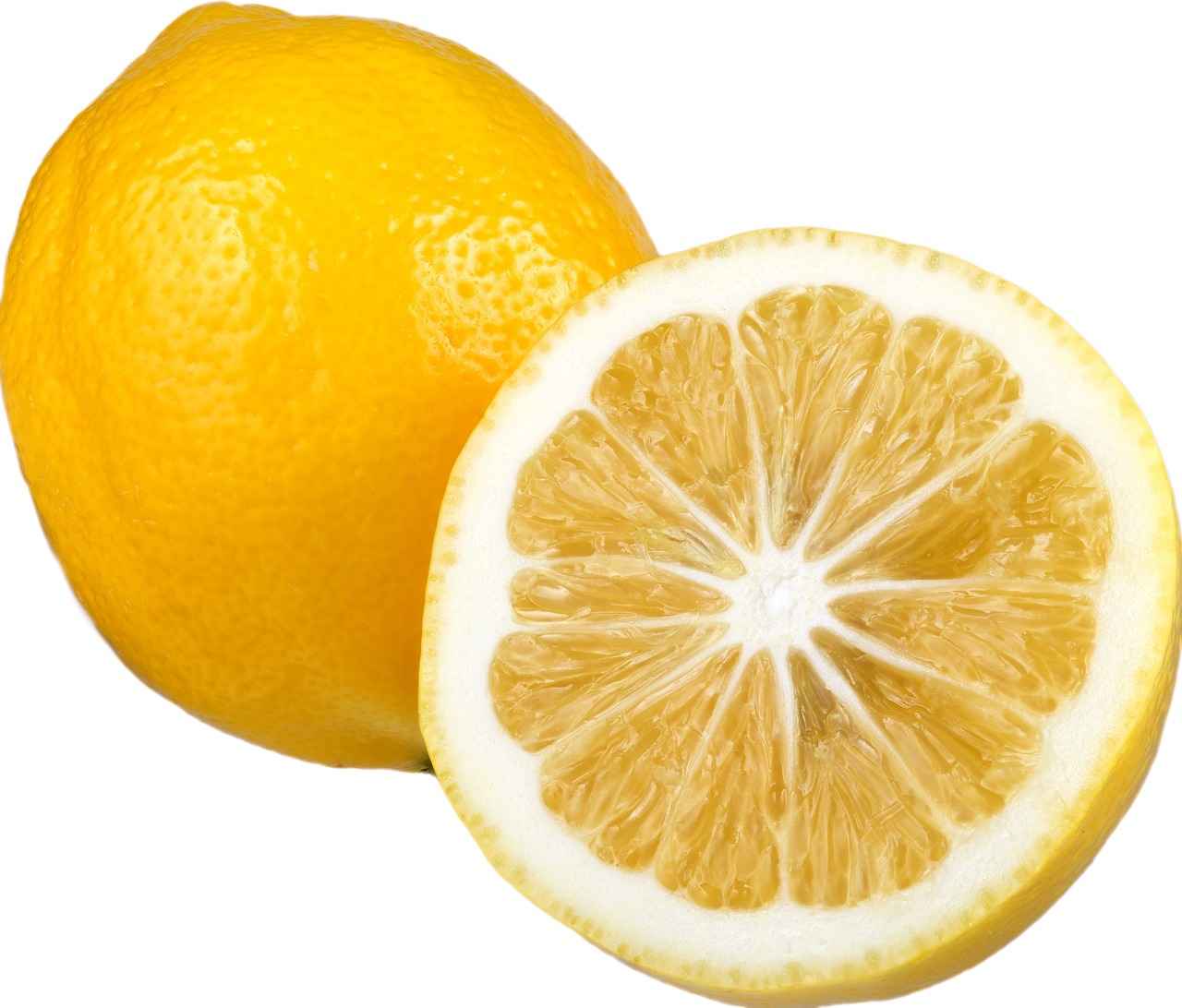
Expert Opinions on Lemon Water and Fasting
The discussion surrounding lemon water and its role in fasting has gained significant attention in recent years. Expert opinions from nutritionists and health professionals provide essential insights into how this popular beverage can influence fasting practices. Understanding their perspectives can help individuals make informed choices during their fasting journeys.
Nutritionists often highlight the importance of hydration during fasting. Staying hydrated is crucial for maintaining energy levels and overall well-being. Many nutritionists advocate for the inclusion of lemon water in fasting regimens due to its refreshing taste and potential health benefits. According to registered dietitian Jane Doe, “Lemon water can be a great way to stay hydrated without adding significant calories. It provides a burst of flavor that can make fasting more enjoyable.”
- Enhanced Hydration: Lemon water helps maintain hydration levels, which is vital during fasting.
- Vitamin C Boost: The high vitamin C content in lemons can support immune function.
- Digestive Aid: Lemon water may promote better digestion, making it easier for the body to adapt during fasting periods.
While lemon water is generally safe for most individuals, certain medical conditions may influence its consumption during fasting. For example, individuals with acid reflux or citrus allergies should consult with a healthcare professional before incorporating lemon water into their fasting routine. Dr. John Smith, a gastroenterologist, notes, “For some patients, the acidity of lemon water can exacerbate digestive issues. It’s essential to listen to your body and adjust accordingly.”
Experts recommend preparing lemon water by mixing fresh lemon juice with warm or cold water. This simple preparation maximizes its benefits while keeping it aligned with fasting principles. For best results, it is advisable to consume lemon water in moderation and to observe how it affects your body during fasting.
Listening to your body is crucial when incorporating lemon water into your fasting regimen. Monitoring your energy levels and hunger cues can provide valuable insights into how this beverage impacts your fasting experience. Nutritionist Sarah Lee advises, “If you find that lemon water helps curb your hunger or boosts your energy, it may be a beneficial addition to your fasting routine.”
In summary, expert opinions underscore the potential benefits of lemon water during fasting. By staying hydrated, enjoying the flavor, and considering individual health conditions, individuals can navigate their fasting journeys more effectively. Engaging with these insights allows for a more informed and enjoyable fasting experience.
Nutritionists’ Perspectives
Nutritionists play a vital role in guiding individuals through various dietary practices, including fasting. Their expertise often sheds light on the significance of hydration during fasting, particularly the inclusion of lemon water. This beverage, made from fresh lemon juice and water, is frequently recommended due to its potential benefits and minimal caloric impact.
Hydration: A Key Component of Fasting
During fasting, maintaining proper hydration is essential for overall health and well-being. Nutritionists emphasize that dehydration can lead to fatigue, headaches, and decreased concentration, which can undermine the fasting experience. Lemon water, with its refreshing taste and hydrating properties, serves as an excellent option to help individuals stay hydrated without breaking their fast.
Benefits of Lemon Water
- Rich in Vitamin C: Lemons are an excellent source of vitamin C, which supports the immune system and promotes skin health.
- Antioxidant Properties: The antioxidants found in lemons can help combat oxidative stress, contributing to better overall health.
- Digestive Support: Lemon water may aid digestion, making it a beneficial addition to a fasting regimen.
Nutritionists often recommend lemon water for its ability to enhance the fasting experience while providing essential nutrients. By adding lemon water to their routine, individuals can enjoy a flavorful beverage that supports their hydration needs.
Does Lemon Water Break a Fast?
This is a common question among those practicing fasting. While some argue that any caloric intake can break a fast, many nutritionists believe that the minimal calories in lemon water do not significantly disrupt the fasting state. Instead, they suggest that lemon water can be a valuable addition to various fasting protocols, including intermittent fasting.
Intermittent Fasting and Lemon Water
Intermittent fasting involves alternating periods of eating and fasting. Nutritionists often advocate for the consumption of lemon water during fasting windows, as it can help curb hunger and maintain hydration. This practice aligns with the goals of intermittent fasting, allowing individuals to enjoy the benefits of both hydration and nutrient intake without compromising their fasting efforts.
Extended Fasting Considerations
For those engaging in extended fasting, the inclusion of lemon water is often debated. Nutritionists advise caution, suggesting that while lemon water can provide hydration and some nutrients, individuals should listen to their bodies and adjust their intake based on how they feel. It’s crucial to monitor energy levels and overall well-being during prolonged fasting periods.
Expert Recommendations
Nutritionists highlight the importance of individualization in dietary practices. Factors such as personal health conditions, fasting goals, and lifestyle should be considered when deciding to include lemon water in a fasting regimen. Consulting with a healthcare professional can provide tailored advice, especially for those with specific medical concerns.
Practical Tips for Incorporating Lemon Water
- Preparation: To make lemon water, simply squeeze the juice of half a lemon into a glass of water. Adjust the amount according to personal taste.
- Timing: Consider drinking lemon water first thing in the morning or during fasting periods to enhance hydration.
- Listening to Your Body: Pay attention to how lemon water affects your hunger and energy levels. Adjust your intake as needed.
In conclusion, nutritionists advocate for the inclusion of lemon water during fasting as a means to enhance hydration and provide essential nutrients. By understanding the benefits and potential impacts of lemon water, individuals can make informed decisions that align with their fasting goals.
Medical Considerations
When it comes to fasting, individual health considerations play a crucial role in determining what can be safely consumed. For many people, certain medical conditions can significantly influence their fasting practices. Understanding these factors is essential for ensuring a safe and effective fasting experience, particularly when considering the consumption of lemon water.
Fasting is a practice that can offer various health benefits, but it is not universally suitable for everyone. Individuals with diabetes, for instance, may need to be cautious about their fluid intake during fasting. Lemon water, while low in calories, contains natural sugars from the lemon juice, which could potentially affect blood sugar levels. Therefore, those with diabetes should consult with a healthcare provider before incorporating lemon water into their fasting routine.
Moreover, individuals with gastrointestinal issues, such as acid reflux or ulcers, might find that lemon water exacerbates their symptoms. The acidity of lemon juice can irritate the stomach lining, leading to discomfort during fasting periods. Understanding one’s own body and its reactions is vital for making informed decisions about what to consume during fasting.
For those with kidney conditions, the consumption of lemon water should also be approached with caution. While lemon juice is rich in vitamin C and other beneficial compounds, excessive intake of certain nutrients can strain the kidneys. It is essential for individuals with kidney issues to discuss their dietary choices with a healthcare professional to avoid any adverse effects.
Additionally, individuals taking specific medications may need to consider potential interactions. For example, certain medications can alter the body’s response to acidity, and consuming lemon water could interfere with their effectiveness. Consulting with a healthcare provider can provide clarity on whether lemon water is appropriate during fasting, especially for those on long-term medication regimens.
In light of these considerations, it is clear that understanding one’s health status is paramount before embarking on a fasting journey that includes lemon water. Here are some practical tips for individuals with medical conditions:
- Consult a Healthcare Provider: Always seek advice from a healthcare professional before making significant changes to your fasting regimen, especially if you have existing health conditions.
- Monitor Your Body’s Response: Pay close attention to how your body reacts to lemon water during fasting. If you experience discomfort or adverse effects, reconsider its inclusion.
- Adjust Lemon Water Intake: If you choose to consume lemon water, consider diluting it with more water to reduce acidity and lessen potential side effects.
- Stay Informed: Keep yourself updated on the latest research regarding fasting and hydration to make well-informed decisions.
In conclusion, while lemon water can provide hydration and potential health benefits during fasting, it is essential to take individual health considerations into account. By understanding how medical conditions can influence fasting practices, individuals can make safer choices that align with their health needs.

Practical Tips for Incorporating Lemon Water
For individuals looking to enhance their fasting experience, incorporating lemon water can be a refreshing and beneficial choice. This section offers practical tips to help maximize the advantages of lemon water while ensuring adherence to fasting principles.
To fully enjoy the benefits of lemon water, proper preparation is essential. Here are some tips:
- Choose Fresh Lemons: Opt for fresh, organic lemons to ensure you’re getting the most nutrients. Avoid bottled lemon juice, which may contain preservatives and added sugars.
- Proper Dilution: Mix the juice of half a lemon with 8-12 ounces of water. This balance maintains hydration while keeping acidity at bay.
- Temperature Matters: Experiment with both cold and warm lemon water. Warm lemon water can aid digestion and may be more soothing for some individuals.
- Timing is Key: Consume lemon water in the morning or before meals to kickstart your metabolism and promote hydration.
Listening to your body is critical during fasting. Here’s how to monitor your response to lemon water:
- Energy Levels: Pay attention to how lemon water affects your energy throughout the day. If you notice an increase in energy, it could be a sign that it’s beneficial for you.
- Hunger Signals: Track your hunger levels after consuming lemon water. Some individuals find that it helps curb cravings, while others may need to adjust their intake.
- Digestive Reactions: Note any changes in digestion. Lemon water can aid digestion, but if you experience discomfort, consider reducing the amount or frequency.
Different fasting protocols may have varying guidelines regarding what can be consumed. Here are some tips for incorporating lemon water into common fasting methods:
- Intermittent Fasting: During your eating window, you can enjoy lemon water. However, during fasting hours, stick to plain water or herbal teas to maintain the benefits of fasting.
- Extended Fasting: If you choose to include lemon water during longer fasts, limit consumption to small amounts to avoid breaking your fast. Aim for a diluted mixture to minimize caloric intake.
Every individual’s body reacts differently. It’s important to experiment with lemon water and adjust based on your personal experience:
- Start Slow: If you’re new to lemon water, begin with small amounts and gradually increase as your body adjusts.
- Stay Consistent: Consistency can help you better understand how lemon water impacts your fasting experience over time.
- Consult Professionals: If you have specific health concerns or dietary restrictions, consider consulting a healthcare professional or nutritionist for personalized advice.
In conclusion, incorporating lemon water into your fasting regimen can be a beneficial practice if done thoughtfully. By following these practical tips, you can enhance your fasting experience while reaping the health benefits of lemon water.
Preparation and Consumption
When it comes to enhancing the benefits of fasting, knowing how to prepare lemon water and the optimal times to consume it can significantly impact your experience. Lemon water is not just a refreshing drink; it can also serve as a valuable aid during fasting periods. This article will delve into the preparation methods, ideal consumption times, and how these factors can lead to a more enjoyable and beneficial fasting experience.
Preparing lemon water is incredibly simple and requires minimal ingredients. Here’s a quick guide:
- Ingredients: Fresh lemons and filtered water.
- Equipment: A juicer or a manual squeezer, and a glass or pitcher.
Steps to Prepare:
- Start by washing the lemons thoroughly to remove any pesticides or wax.
- Cut the lemons in half and use a juicer or manual squeezer to extract the juice.
- Mix the freshly squeezed lemon juice with about 8-12 ounces of filtered water.
- For added flavor, consider adding mint leaves or a slice of ginger.
The timing of lemon water consumption can also enhance its benefits during fasting. Here are some recommended times:
- Morning Boost: Drinking lemon water first thing in the morning can kickstart your metabolism and hydrate your body after a night’s sleep.
- Pre-Fasting: Consuming lemon water before starting your fasting period can help curb hunger and prepare your digestive system.
- During Fasting: Sipping on lemon water throughout your fasting window can keep you hydrated and help manage cravings.
- Post-Fasting: After breaking your fast, lemon water can aid digestion and replenish lost fluids.
To truly optimize the health benefits of lemon water during fasting, it’s essential to listen to your body. Pay attention to how your body responds to lemon water, especially regarding energy levels and hunger. If you notice that lemon water helps you feel more energized and less hungry, it may be a good addition to your fasting routine.
Furthermore, consider varying the concentration of lemon juice based on your preferences. Some may prefer a stronger flavor, while others might opt for a milder taste. Experimenting with different ratios can help you find what works best for you.
In summary, preparing lemon water is straightforward, and knowing when to consume it can enhance your fasting experience. By incorporating lemon water into your routine, you can enjoy its refreshing qualities while reaping the potential health benefits associated with both lemon and fasting.
Monitoring Your Body’s Response
During fasting, it is essential to monitor your body’s response to various stimuli, including what you consume. One of the popular beverages during fasting is lemon water. By paying close attention to how lemon water impacts your energy levels and hunger, you can make informed adjustments to your fasting approach.
Fasting is not merely about abstaining from food; it also involves understanding how your body reacts to different elements. Lemon water, made from fresh lemon juice and water, is low in calories and can provide a refreshing taste while keeping you hydrated. However, its effects can vary from person to person.
When you introduce lemon water into your fasting regimen, it is important to observe how it influences your energy levels. Some individuals report feeling more energized and alert after consuming lemon water, thanks to its vitamin C content and potential metabolic benefits. Others may find that it does not provide the same boost. Keeping a journal to track your energy fluctuations can help you identify patterns and make necessary adjustments.
Another key factor to monitor is your hunger levels. Lemon water can help suppress appetite for some individuals, making it easier to adhere to fasting protocols. The acidity of lemon may also enhance digestion, which can contribute to feelings of satiety. However, if you find that lemon water increases your hunger or leads to cravings, you may want to reconsider its inclusion during your fasting periods.
To effectively monitor your body’s response, consider the following practical tips:
- Keep a Fasting Journal: Document your daily experiences with lemon water, noting your energy levels, hunger pangs, and overall well-being.
- Experiment with Timing: Try consuming lemon water at different times during your fasting window to see when it has the most positive effect.
- Stay Attuned to Your Body: Pay attention to any physical sensations or changes in mood that occur after drinking lemon water.
- Consult with a Professional: If you have specific health concerns or conditions, discussing your fasting and lemon water consumption with a healthcare provider can provide personalized insights.
Listening to your body is not just about the immediate effects of lemon water; it is also about long-term adjustments. As you continue your fasting journey, you may find that your needs change. What works for you today may not be the best approach in a few weeks. By remaining flexible and responsive to your body’s signals, you can optimize your fasting experience.
In conclusion, the practice of monitoring your body’s response to lemon water during fasting is a vital component of a successful fasting protocol. By being attentive to your energy levels and hunger, you can tailor your approach, ensuring that you gain the maximum benefits from your fasting experience.
Frequently Asked Questions
- Does lemon water break a fast?
This is a hot topic! Many believe that lemon water, with its minimal calories, does not break a fast. It can help with hydration and may even enhance your fasting experience. However, it ultimately depends on your fasting goals.
- Can I drink lemon water during intermittent fasting?
Absolutely! Lemon water can be a refreshing addition to your intermittent fasting routine. It helps you stay hydrated without adding significant calories, making it a popular choice among fasters.
- What are the health benefits of lemon water while fasting?
Lemon water is packed with vitamin C and antioxidants, which can support your immune system and combat oxidative stress. Staying hydrated with lemon water can also help curb hunger pangs during fasting.
- Is there a best time to drink lemon water while fasting?
Many people find that drinking lemon water first thing in the morning or during their fasting window works best. It can kickstart your metabolism and keep you feeling refreshed!
- Are there any risks associated with drinking lemon water during fasting?
While lemon water is generally safe, excessive consumption can lead to tooth enamel erosion due to its acidity. It’s wise to rinse your mouth with plain water afterward to protect your teeth.
